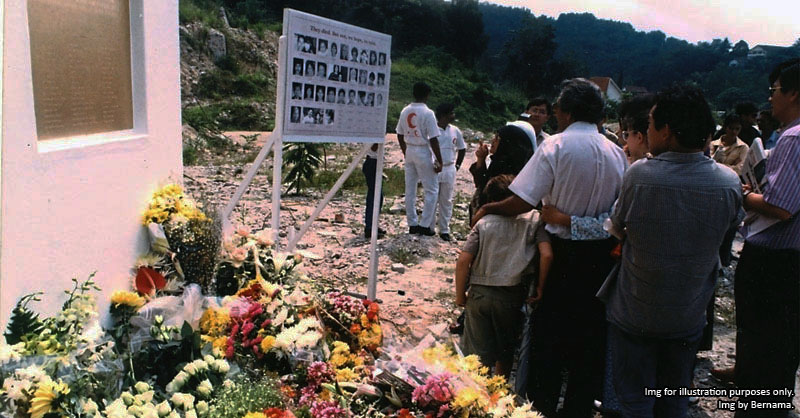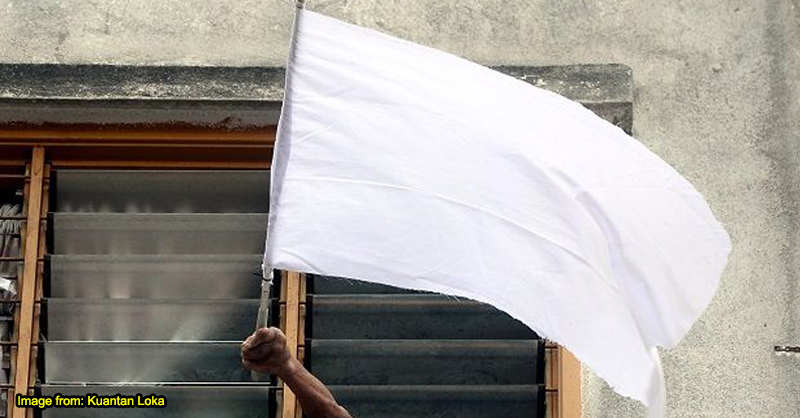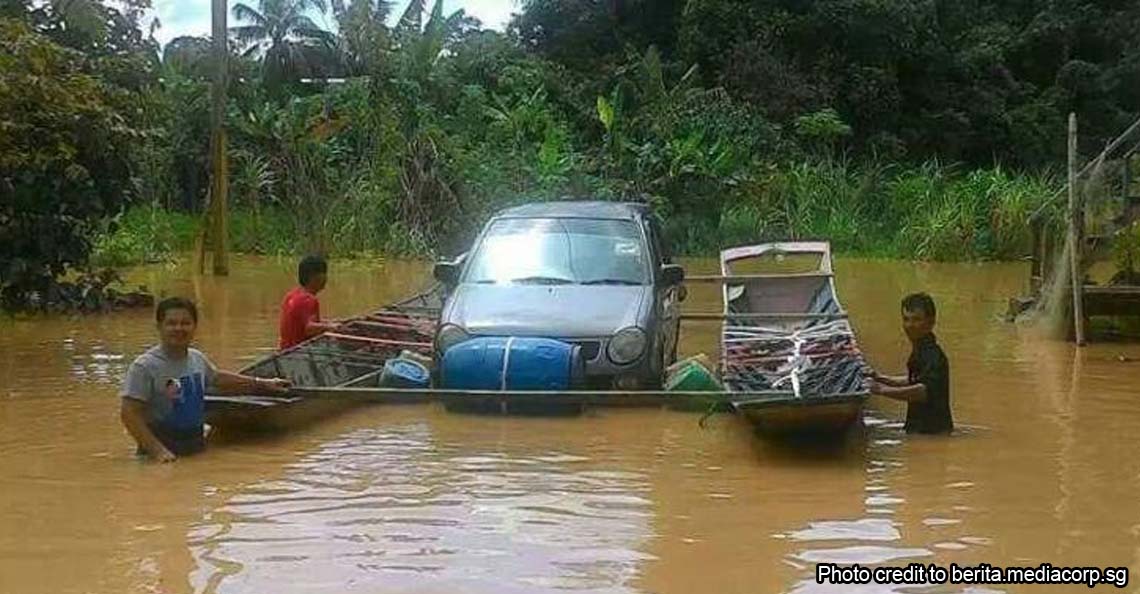7 survival lessons I learnt after being trapped in the 2014 Kelantan floods for 3 weeks
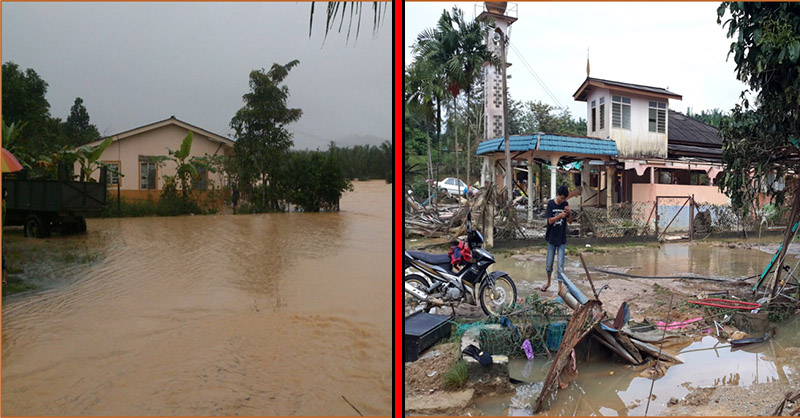
- 2.2KShares
- Facebook2.0K
- Twitter26
- LinkedIn11
- Email35
- WhatsApp105
Editor’s Note: This article was originally published in December 2016.
Unless you were living under a rock for the last three years, you probably have heard of the great flood that happened in Kelantan at the end of 2014, just two years ago. It was on the TV, newspaper, internet, all oso got. And since Kelantan floods almost every year, you know that it’s huge if it appears on the news.
Eh hold up… Every year? What?
Having lived in Kelantan, I can tell you that floods happen all the time, but only the great floods are the ones that have been documented, like the ones in 1926, 1971, 1988, 2005 and 2014. With the way things are going, especially in Kelantan’s shrinking forests and growing rubber and oil palm plantations, there may probably be more floods in the future.

I have personally had the pleasure of experiencing the 2014 one, where I was trapped in my home for at least 3 weeks. Let me share what are some of the things I’ve learned:
1. You’ll be caught with your pants down
This one for me is literal. I was on the toilet when the power suddenly went out.
I got outside the house, and the river behind my house had already swelled to double its size. I couldn’t escape, since my house was now an island. It might take a few weeks for the flood to go down. I have a pack of Maggi in my kitchen… and a huge bag of cat food…. and I ate them both. Ugh.

The point is, even the people who lived there for all of their lives cannot tell when exactly a flood will happen.
Sometimes no rain no storm but suddenly got flood. Sometimes it rains all day but the flood comes next week. And sometimes there’s no flood at all. Of course there’s always that guy who looks at the sky all mysterious-like and mutters “Flood is coming…” but in my experience he was wrong like nine times out of ten.
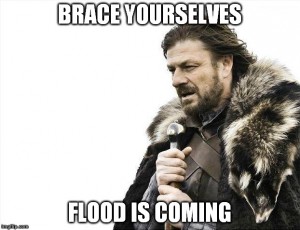
So… the smart thing to do is to stock up on stuff in advance and prepare to wait it out, right? Well, that year, people prepared as usual, but instead of a normal flood, they got a great flood on their hands. Most people stocked food and stuff for like a week, two weeks tops. The worst wave lasted for only about three weeks, so some rationing had to be done.
2.You can never have too many candles
Whether the local gomen cut off the electricity for safety reasons (think submerged wires) or because the flood took out some power lines, I never knew for sure. But I do know that I lived without electricity for about a month. And even though people do stock up on candles, two candles a night for about a month is kinda a lot more than people are prepared for.
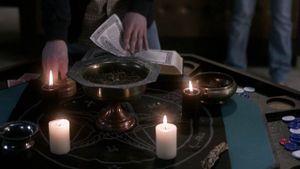
Since my situation was more “trapped” than “submerged”, some small village stores were still open most of the time. But after the first week, candles became a rarity. So did rice, sardines, chicken eggs (sometime in the second week somebody took to selling duck eggs), batteries, instant noodles, sanitary pads, and a whole mess of essentials. Curiously enough, every time I asked for cigarettes they always managed to at least sell me a pack, or let me bum a few. No shortages there, I guess.
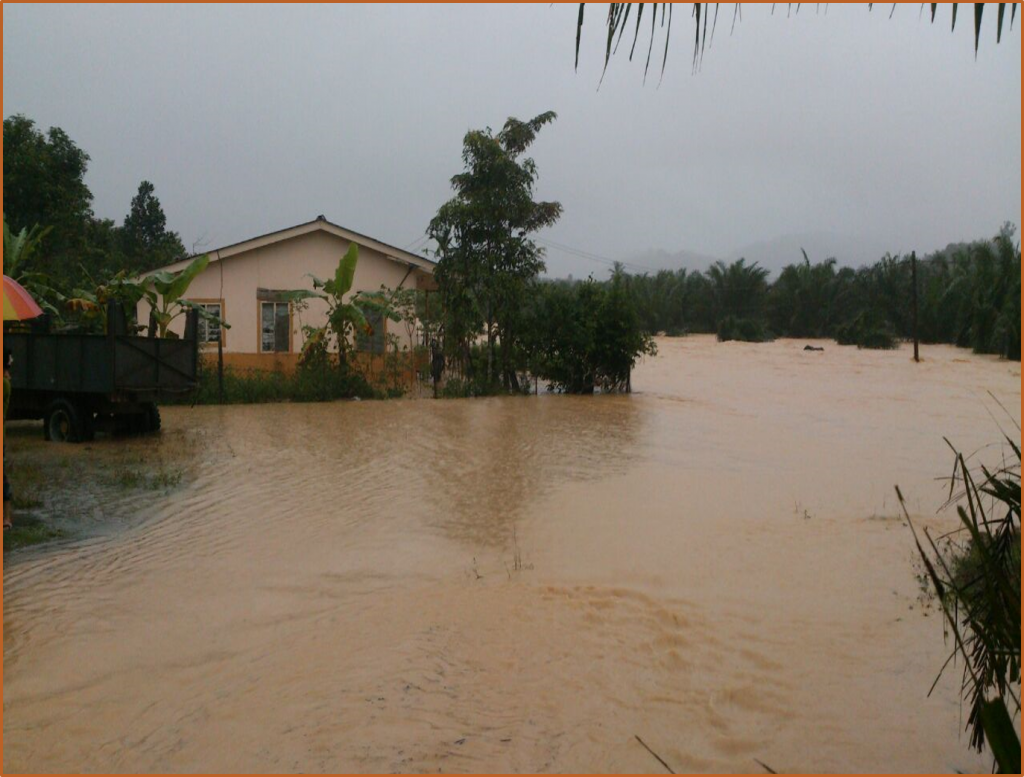
Oh, and in case you haven’t already got a powerbank, you might want to make that purchase and keep them fully charged. Sure, your handphone may not get any reception, but at least there’s something to do. TV’s out. You’re trapped. And however much you sembang with other people, after a week you’ll run out of topics. Most of our free time was spent walking around looking at flood water and speculating when the flood will go down.
3. Your money has no power here!
After the flood went down a bit, there was a bit of a rush to get out and restock on food and other essentials. Since my bonus had just come in, after three weeks of doing nothing but stare at brownish water I wanted to do a bit of shopping. Stocks in Kuala Krai were swept clean, so most of us headed to Machang to buy stuff. However… there’s really nothing much to buy in terms of food.

Even if the roads from Kuala Krai to Machang is pretty OK, as I learned later the flood destroyed parts of the two main roads into and out of Kelantan: the one through Grik collapsed, and the one to Kuala Lipis is still submerged. A bridge went out, if I remembered correctly. So that means that the only way to send stuff to Kelantan is by air.
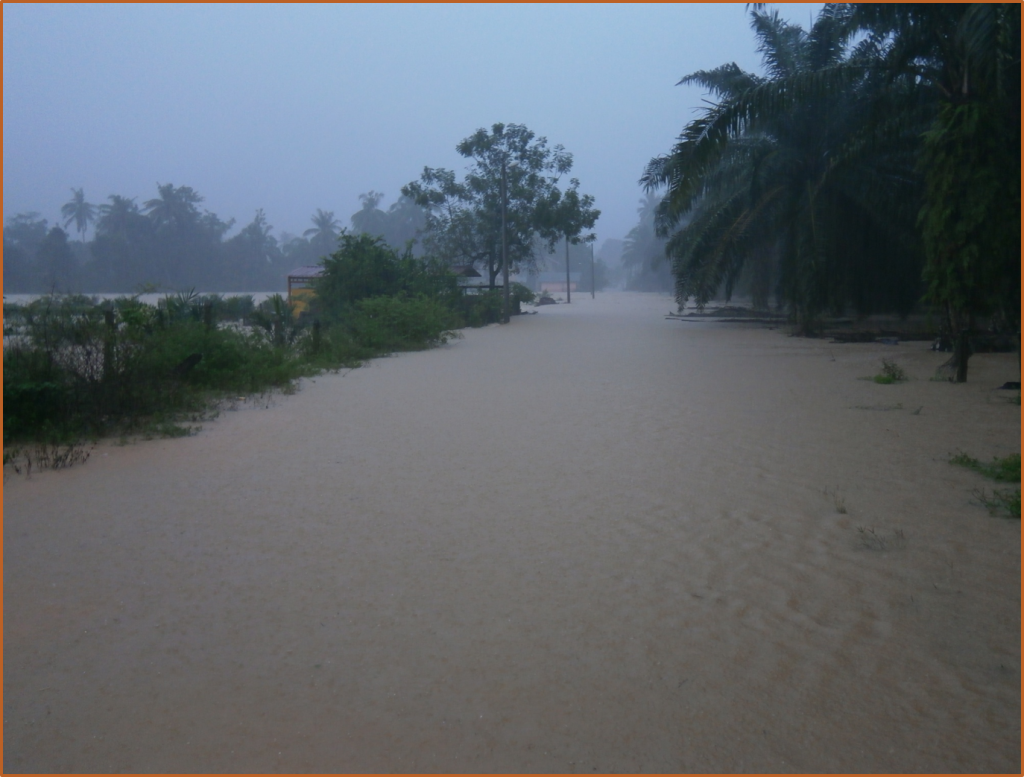
As for petrol, at every gas station that I passed, you could see cars queuing long before seeing the actual petrol station. Luckily I filled up just before the flood hit, so I didn’t need to queue, but a friend of mine said he waited in line for more than an hour. Whether he got his petrol, I do not know. So, with our pockets stuffed full of cash, after our journey to another town we came back with a bag of rice and some canned food, hoping that the next wave wouldn’t last very long. Oh right. The flood comes in waves. Did I mention that?
4. The kedai kopi becomes the point of communication (and rumours)
We lost power, literally and figuratively. As I said before, there was no electricity for a very long time. I managed to get my phone charged at a nearby factory (they have generators), but even then there was just either poor or no network coverage. No electricity means no TV and radio for most people, so most people don’t really know what is going on.
So to know what was happening, we lepaked at the coffee shops. At that point they didn’t serve anything more than coffee or tea, but people still came to pass the time. Those who managed to tune in to the news somehow (one fella MacGyvered his car battery to power up his TV) shared what news they had. And of course, rumours fly around a lot. It’s the kedai kopi, after all.
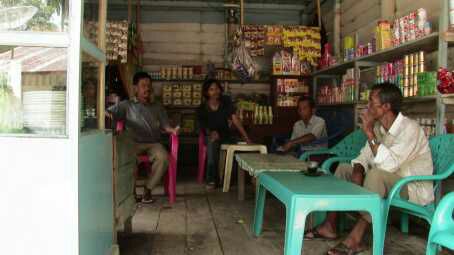
There’s usually talk about toyols becoming more active after the flood and the story about the guy who found snakes in his toilet, but naturally the most prevailing topic is the flood.
Some said that the real reason the first wave hit so hard and fast is because a certain state released the water from a certain dam. Some said that most people didn’t really get the aid sent to them, since some people who were on good terms with some higher people are keeping them all. Some said they got turned away from aid because they didn’t share the same political beliefs.
And some said that to keep the toyol occupied, all you need is a bowl of kacang hijau. Well, you can’t believe everything you hear.
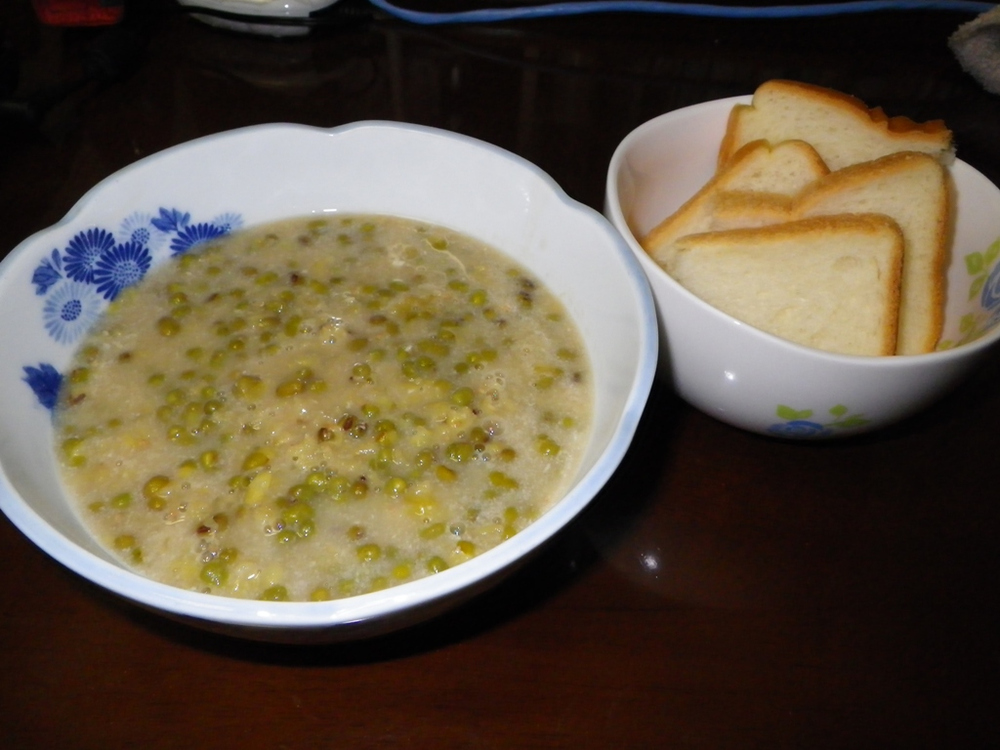
5. Okay, NOW your money got power
So after all the roads got fixed and the water went down quite a bit, supplies began to come back. I guess people were still worried about another wave of flood coming in, so prices in some places kinda got a little too high.
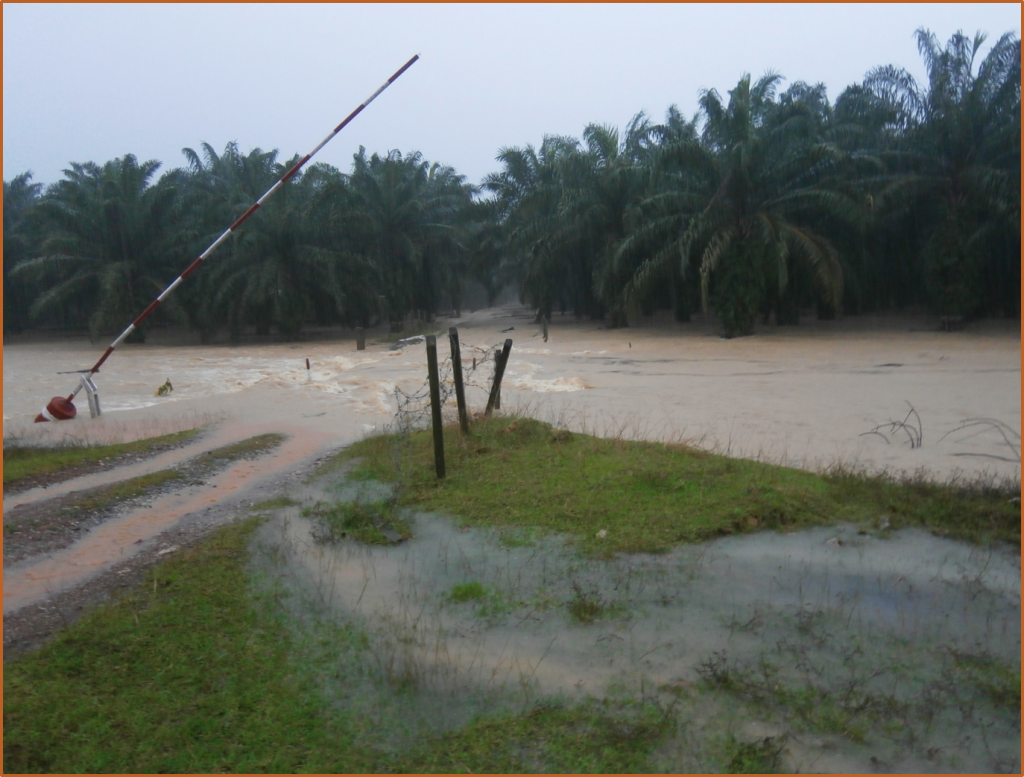
The second day after the roads reopened, people were starting their businesses again. Some of our familiar coffee shops were still closed due to cleaning and stuff, but others were open for business as usual, although with considerably smaller menus. And seriously jacked up prices.
I once paid RM6 for a bowl of Maggi soaking in lukewarm water with an egg and a mug of watered down coffee. I didn’t really mind at the time, because after three weeks of nothing but rice, sardines and cat food, that Maggi was like a steak dinner. But seriously lah. At least cook the noodles instead of rendam only. The egg is still transparent you know?
Since Machang is mostly tapped out, we decided to check Tanah Merah and were rewarded with something other than sardines: mackerel! Oh sweet, glorious mackerel, with it’s enchanting texture and… oh who am I kidding. It’s basically sardine’s less attractive friend who always becomes the third wheel on sardine’s dates. People only buy it because they think it’s sardine.
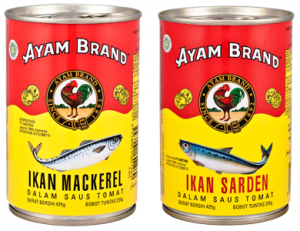
6. We lost a lot of things (and people) dear to us
See, Kelantan is mainly an agricultural state. That means people get into some kind of farming activity or another. In the place where I stayed, a lot of the village people had a personal rubber or palm oil kebun that they tend to for a living. Most of their trees died after the flood, and they had to start from scratch again.
A guy I knew lost all his chickens, but thankfully his geese could swim and survived the flood. Which is kinda lucky, because geese are hella expensive.

And there are no planned housing or apartments here. Most of the houses were built by the people who live in them. A villager’s house was completely demolished, with only a few pieces of the roof and walls left. The house was built by his late father, and it was the only thing he had left of him.
It was a bit heartbreaking for me to visit this coffeeshop that I used to go to all the time before the flood and see the friendly 70-something owner stooping by the river, looking for her furniture while her daughter scrubs the floor to get the mud stains out. And those are just the things I saw in a tiny part of the state.
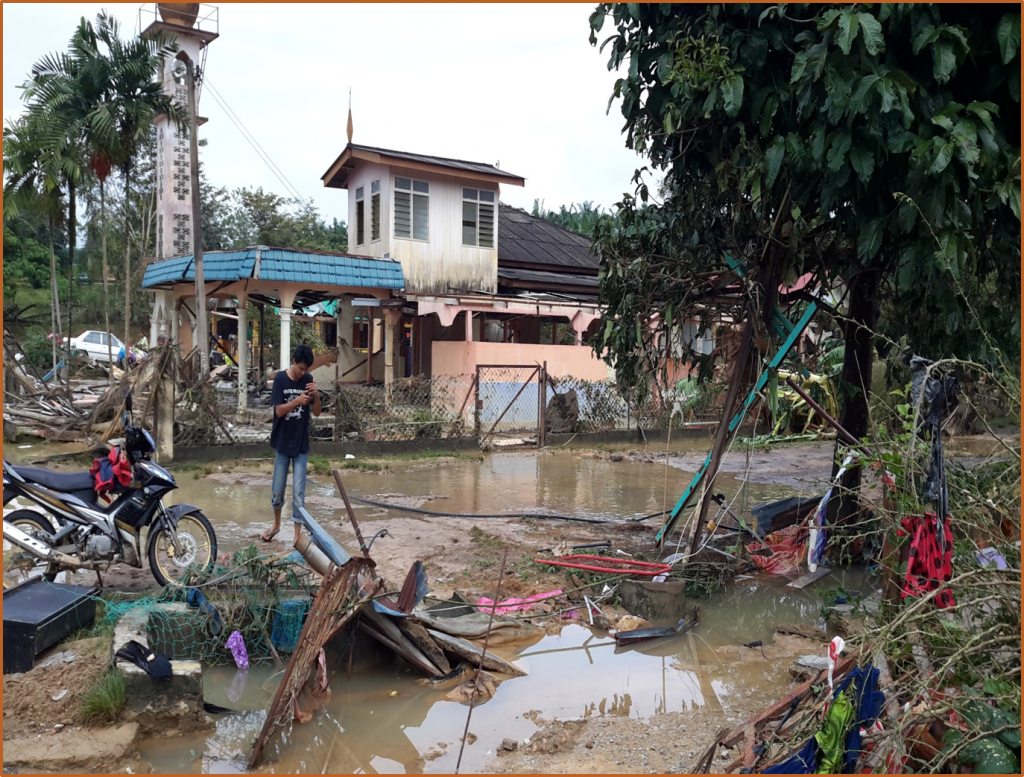
Even though I had to eat cat food for a while (which is okay since my cat died of a flu two days into the flood), I’d say that I got off easy on this one. Apparently a buddy of mine got off easy, too, because upon asking him if he lost anything in the flood, his reply was “My freedom,” *grins*. Some areas, however, were literally wiped clean by the rushing water, and a lot of people lost everything they had, everything they worked for, plus a few family members.
I know of a young couple in a nearby village who lost their baby when the first wave hit. She was swept away by the waters, and her body hasn’t been found since.
7. But in hardship, my faith in humanity restored
Although overall the whole thing was a bit post-apocalyptic, people didn’t really go around pushing shopping trolleys filled with random items and raiding other people with machetes and guns. It’s a bit of a pleasant surprise for me that with scarce supplies and barely enough food to go around, people were really generous and more than willing to share what little they had.
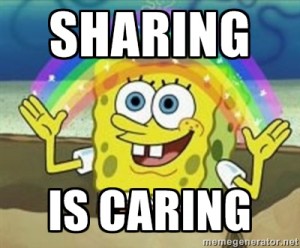
People whose houses were submerged were taken in by people who didn’t really know them that well. Store owners sometimes gave out food for free to people who really needed it. Sometime during the height of the crisis, a housing area in a nearby village pooled everything they have, cooked it together and fed everyone. There were so many heartwarming stories around that time that it would take a whole ‘nutha article to mention them all.
As for me, since I was living alone, a family took me in and shared everything they had with me for free. I was basically a stranger to them and yet they technically saved my life, and I’m forever grateful to them.
So what can be learned from all this?
Overall, it was an interesting experience, in that horrible, life-threatening kind of way.
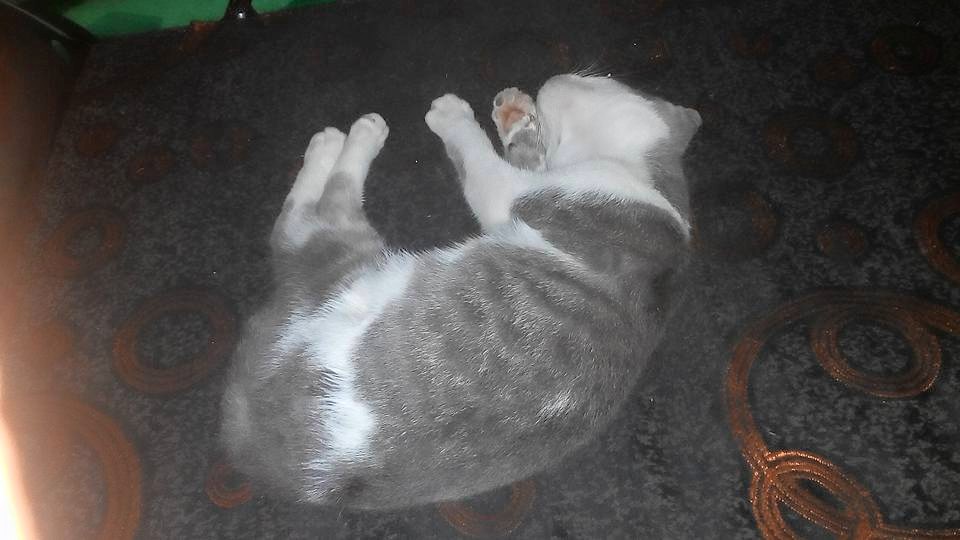
For a huge disaster like this to happen, you wouldn’t expect people to be so chill about everything. But chill they did. The very instant the waters went down, people set to work helping others clean out their houses, salvaging stuff swept away by flood, and generally putting things back the way they were.
When the power came back on, we’d sit at a coffee shop and watch what the news had to say about the flood. The atmosphere wasn’t that heavy at all. Sometimes the guy who lost his house would joke about needing to buy a new TV, and another talked about fixing his sister’s house tomorrow, but that was about it. Then we’d switch to a kung-fu movie and I’d get lost on the hilarious commentary by the pak ciks watching it.
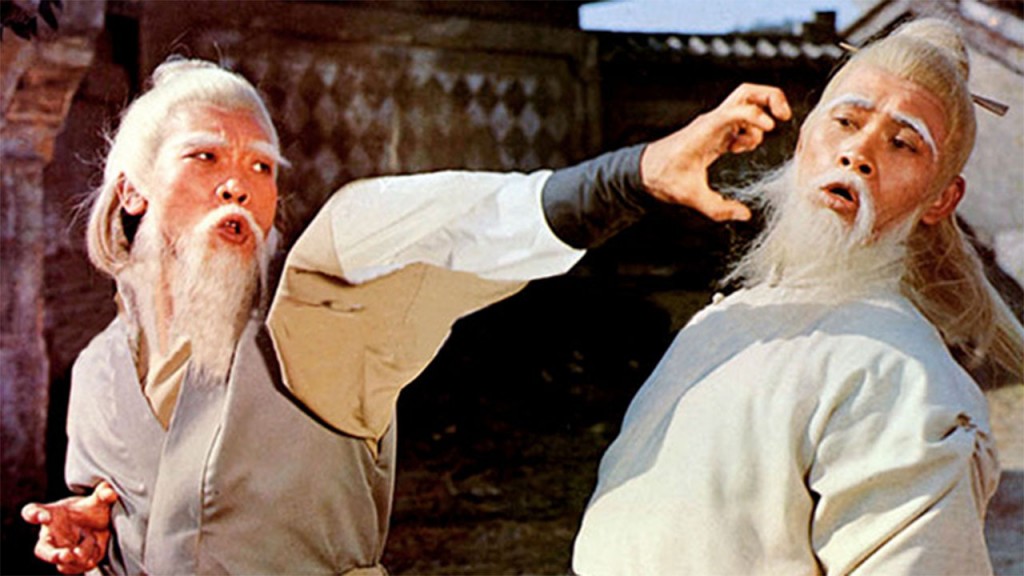
Lighthearted as they were, a flood is a very costly natural disaster with the average potential flood damage in Malaysia costing more than RM100 million each year… at 1996 prices. The cost of the 2014 flood went above the RM1 billion mark. The money mainly goes toward flood alert preparations, rescue and relief as well as fixing the people and the infrastructure after a flood. Add that to the millions of ringgit spent on flood mitigation schemes in each state each year, and it’s a wonder why we still put up with it every year.

An obvious solution is to plant more forests instead of cutting them down to make way for rubber and oil palm plantations, but people kinda needed jobs and the gomen kinda needed money, so I guess that’s a no go. There’s effort by plantation companies to be more eco-friendly, however, so that’s a good thing.
On the individual level, the least we can do is not to throw stuff anywhere to avoid the rivers and drains getting blocked and educating our children on the importance of preserving nature, although nature are constantly trying to kill us with her shenanigans.
- 2.2KShares
- Facebook2.0K
- Twitter26
- LinkedIn11
- Email35
- WhatsApp105

